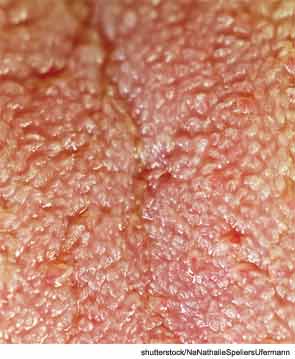
Whether post-tonsillectomy taste dysgeusia resolves in a matter of weeks or months, otolaryngologists suspect that certain surgical practices performed during the procedure could be to blame.
In a classic, or total, tonsillectomy procedure in which electro-dissection is used to remove each tonsil from the tonsillar fossa, if the glossopharyngeal nerve is damaged during dissection or electrocautery, the patient may develop a taste disorder that, in some cases, can last several months (Laryngoscope. 2004;114(7):1206-1213; J Laryngol Otol. 2003;117(4):314-317).
Likewise, post-tonsillectomy taste dysgeusia may result from surgical injury, tongue compression, inflammatory processes or side effects of local anesthetics, according to researchers in Germany (Oral Surg Oral Med Oral Pathol Oral Radiol Endod. 2010;109(1):e11-e14).
Dr. Orvidas said prolonged tongue depression from a mouth gag that’s inserted during a tonsillectomy could bring greater potential for a taste disturbance complication post-surgery, especially in adults. “Tonsillectomies in adults often take longer, because the tonsil tissue tends to be more scarred down, and the operation tends to be bloodier,” said Dr. Orvidas. “The procedures are often being done for chronic infection, not obstruction, which tend to be the more difficult tonsils to remove. But, what we have to ask is, are we leaving the mouth gag in for too long? Are there some changes that can be made from a technique standpoint to improve the outcome?”
“We try not to press on the tongue for too long,” added Dr. Orvidas. “If [the surgery] is taking a little longer, we’ll take the patient out of the mouth gag and let their tongue rest a little bit, get the blood flow going and then re-suspend them before continuing.”
While many tonsillectomies are still performed by the traditional scalpel method, an increasing number are being done by the intracapsular technique. Intracapsular tonsillectomy has been associated with less post-operative bleeding and less severe pain than a traditional procedure but runs a greater risk of tonsil regrowth, forcing physicians to do revision tonsillectomy surgery (Arch Otolaryngol Head Neck Surg. 2007;133:925-928).
“It’s theorized that the residual cuff of tonsil tissue acts like a biological Band-Aid during the healing process, so that you have smaller caliber vessels affected, and the healing process can occur at a more superficial level to potentially decrease complications of post-operative pain and bleeding,” said Dr. Johnson. “That would seem, theoretically, to have the potential to decrease the risk of direct injury to the lingual branch of the glossopharyngeal nerve as well,” he added. “But, there is no data that I’ve seen to indicate that an intracapsular tonsillectomy decreases the rate of post-tonsillectomy taste disturbance. As we further evaluate this question in clinical and research settings, that may be one more thing worth considering.”
Leave a Reply